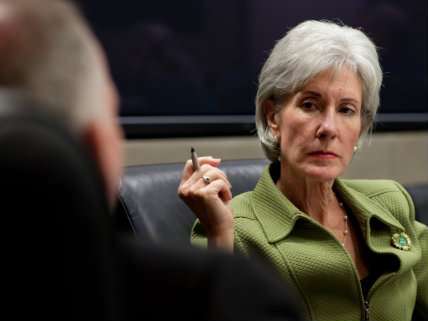Defunding Obamacare Won't Work. How About Delay?

Given the practical limitations of the push to shut down Obamacare by defunding it in a continuing resolution, some opponents of the law are looking for alternatives.
Truth be told, they're hard to find. Obamacare survived a Supreme Court challenge and a presidential election, which means that, despite public dissatisfaction with the law, those who oppose it don't have many strong options.
But amongst those who are wary of the defunding strategy, there's a general consensus that the best remaining option is to push for some sort of delay.
The question is: What to delay? The most obvious provision to go after is the individual mandate. It's broadly unpopular. Democrats won't want to defend it; 22 House Democrats have already voted to delay the mandate for a year. President Obama himself opposed the individual mandate during his first campaign. Polls have found that there's public support for delaying the provision as well.
The mandate, in other words, is the law's weak point—its "soft underbelly," as Yuval Levin and James Capretta put it. Building a bipartisan coalition to delay the mandate wouldn't be easy, exactly. But it would be easier than doing so for any of the law's other major provisions.
There are, however, some potential objections to a push to hold off on the mandate. The first is that it's simply bad policy. Without a mandate, insurance markets forced to abide by community rating and guaranteed issue regulations, which require insurers to cover all applicants at regulated rates regardless of health history, would likely melt down. That's what happened in states that tried those same regulations without a mandate.
But for at least some supporters of the mandate delay, however, that's the whole point. As the administration's legal team argued when defending the mandate in court, the individual insurance requirement is "the lynchpin" of the entire law. Delay the mandate, and you cause the whole scheme to break down.
Another objection is that although delaying the mandate could cause havoc for the law, it would leave the law's subsidies—which account for virtually all of Obamacare's spending—in place. And once those subsidies start flowing to beneficiaries, they will be virtually impossible to repeal.
That's why you may see a push to delay the subsidies as well. For those fighting the law, the upside to this approach is obvious—without subsidies, the major benefit of law isn't in effect, and is thus easier to modify or repeal. The risk here is that it's a bigger ask, and significantly less likely to find support within the administration, which is clearly prioritizing enrollment in subsidized coverage on the understanding that once they are in place, the law will be virtually impossible to fully take down.
Neither of these strategies is a sure thing. But a push to delay the mandate is more likely to succeed than a push to delay the subsidies, or the entire law, which is why it's the strategy we're most likely to see. And what happens then?
If it doesn't work, then Obamacare goes forward, with all problems it was already going to have. But even if it works, and the mandate is put off for a year or more, will it really work? Pushing the insurance market into a death spiral is more than a little risky, especially if the subsidies remain in place. The result may be a law that remains on the books and is impossible to fully repeal—but is even more dysfunctional than it was already.


Show Comments (48)